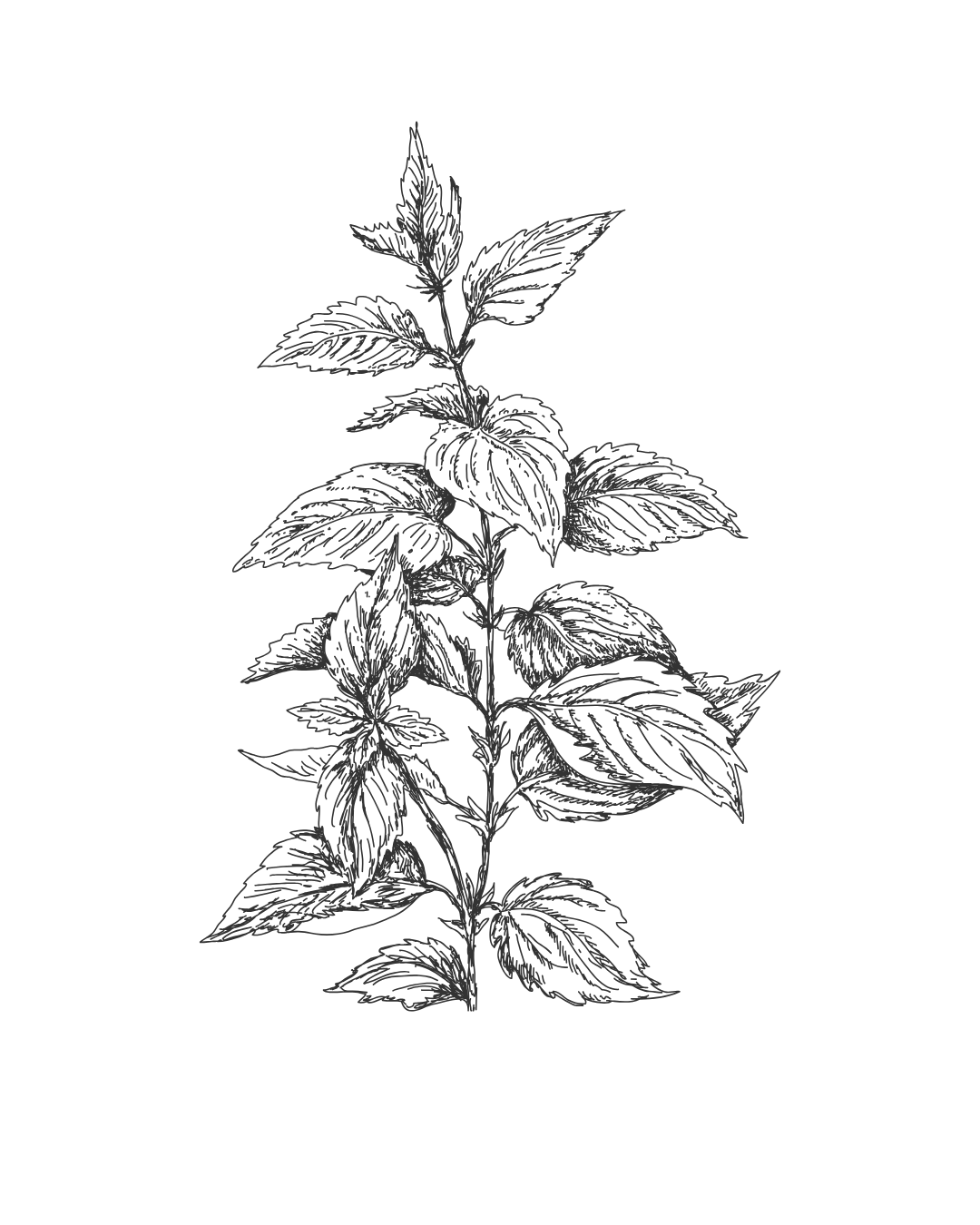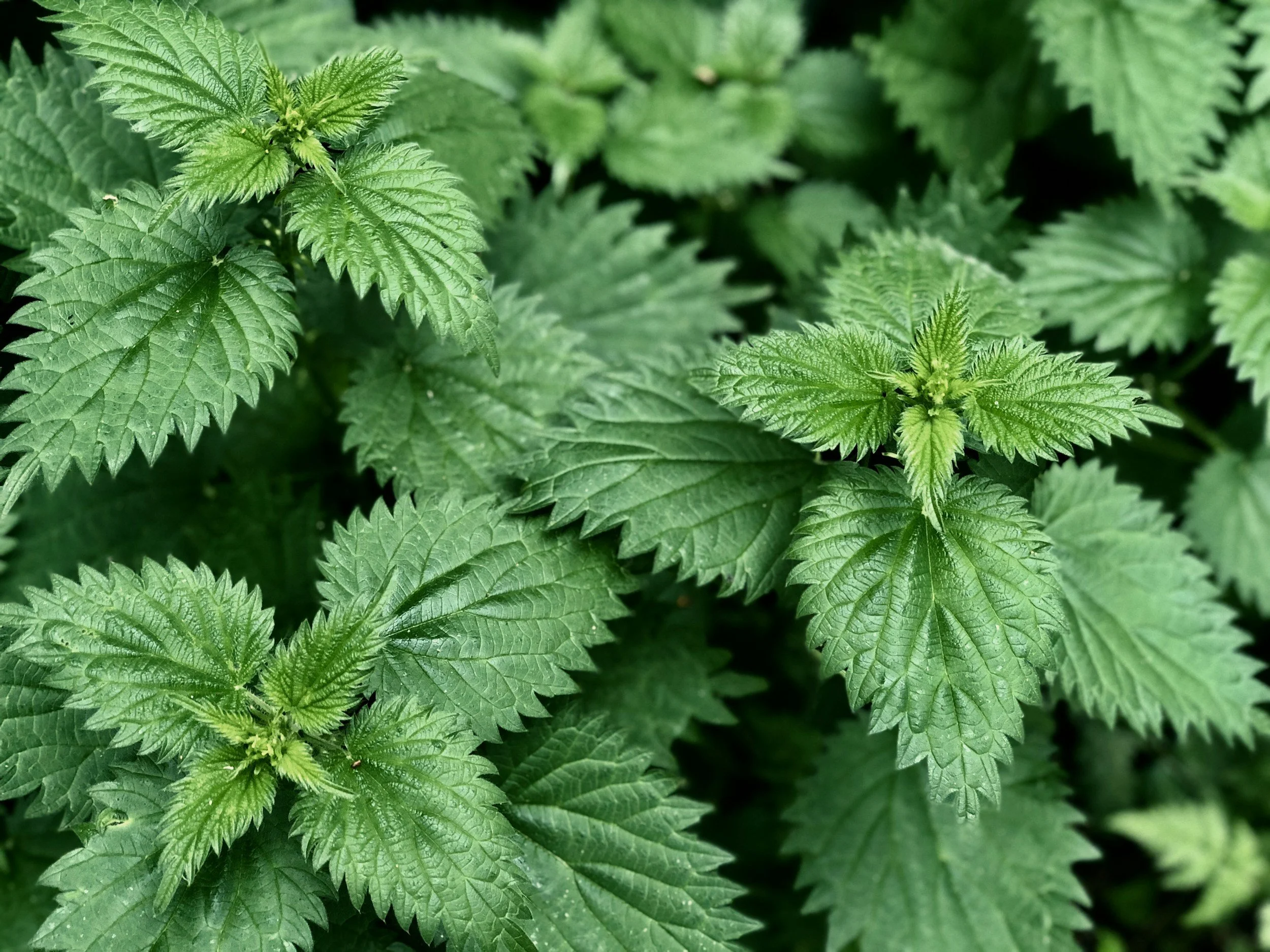Stinging Nettle
Stinging Nettle – Urtica dioica (Extract)
Why we love it at The Mindful Gem
Stinging nettle is a clarifying, mineral-rich, and skin-fortifying herb long valued for its ability to soothe irritation, balance oil, and support healthy skin function. Rich in chlorophyll, silica, vitamins A + C, polyphenols, and anti-inflammatory compounds, nettle extract helps calm reactive skin, refine texture, and promote a clear, revitalized complexion. Research shows nettle offers antioxidant, antimicrobial, and anti-inflammatory benefits, making it ideal for supporting clean, comfortable skin (Phytotherapy Research, 2013, DOI: 10.1002/ptr.4825).
At The Mindful Gem, we use stinging nettle extract in our herbal hand soaps, where it brings a feeling of pure clarity, gentle cleansing energy, and botanical resilience to the skin.
Plant Overview:
Stinging nettle (Urtica dioica) is a perennial herb native to Europe, Asia, and North America, thriving in moist, nutrient-rich soils. Despite its sting in the wild, it transforms into one of skin’s most nourishing allies when properly extracted.
Parts Used & Traditional Uses:
The leaves and aerial parts are harvested and extracted to concentrate nettle’s minerals and anti-inflammatory compounds. Traditionally used in European, Celtic, and Appalachian folk herbalism for:
soothing irritated or inflamed skin
detoxifying and clarifying
strengthening hair and skin tissues
reducing redness and reactivity
Skin Benefits & Mechanism:
Chlorophyll + flavonoids calm irritation and reduce redness.
Natural astringent qualities refine pores and support balanced oil.
Silica and minerals strengthen skin and support healthy turnover.
Antioxidant and antimicrobial effects promote clean, refreshed skin.
Key Benefits:
Clarifying + balancing
Anti-inflammatory + soothing
Mineral-rich nourishment
Refines tone + supports clear skin
Sources:
Gulcin, I. (2013). “Antioxidant and anti-inflammatory effects of Urtica dioica.” Phytotherapy Research. DOI: 10.1002/ptr.4825
European Medicines Agency Monograph: Urtica dioica
Hoffmann, D. (2003). Medical Herbalism

